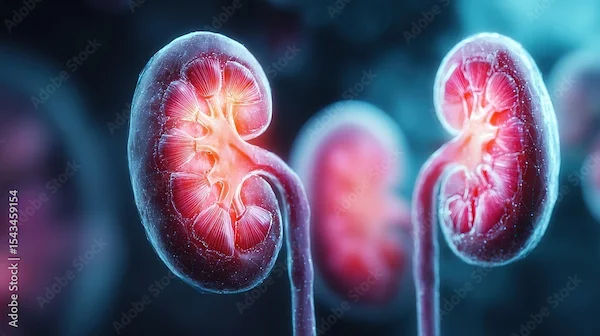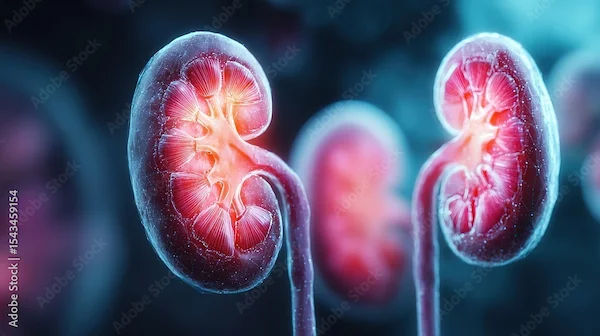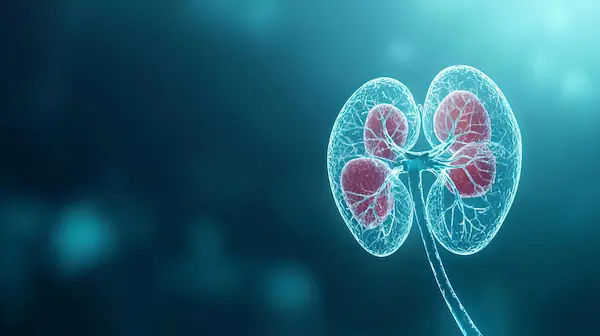Renal Diet Overview and Meal Planning
Explore the essentials of a renal diet, including foods to eat and avoid, portion guidelines, and effective meal planning tips to support kidney health and manage chronic kidney disease.

Written by Dr. Rohinipriyanka Pondugula
Reviewed by Dr. D Bhanu Prakash MBBS, AFIH, Advanced certificate in critical care medicine, Fellowship in critical care medicine
Last updated on 13th Aug, 2025

If you or a loved one has kidney disease, you may have heard about the importance of following a renal diet. A renal diet is specially designed to support kidney function, reduce strain on your kidneys, and prevent further damage. While it may seem overwhelming at first, understanding the basics can make meal planning easier and help you stay healthy.
This guide will explain what a renal diet is, why it matters, and how to plan kidney-friendly meals.
What Is a Renal Diet?
A renal diet is a way of eating that helps protect your kidneys by controlling certain nutrients in your food. When kidneys aren’t working at their best, they struggle to filter waste and excess fluids from your body. A renal diet helps by:
- Reducing sodium (salt) – To control blood pressure and fluid retention.
- Managing potassium – Too much can cause heart problems.
- Limiting phosphorus – High levels weaken bones and damage blood vessels.
- Controlling protein intake – Too much protein can burden the kidneys, but too little can cause weakness.
- Balancing fluids – To prevent swelling and high blood pressure.
- Your doctor or dietitian will customize your diet based on your kidney function, stage of kidney disease, and other health conditions.
Consult a Top Nutritionist
Key Nutrients to Monitor in a Renal Diet
Below are the key nutrients to monitor in a renal diet,
1. Sodium (Salt)
Why? Excess sodium raises blood pressure and causes fluid buildup.
Tips:
- Avoid processed foods (chips, canned soups, deli meats).
- Cook fresh meals at home using herbs and spices instead of salt.
- Read labels look for "low sodium" or "no salt added" products.
2. Potassium
Why? Kidneys regulate potassium; too much can cause irregular heartbeats.
High-potassium foods to limit:
- Bananas, oranges, potatoes, tomatoes, spinach, beans.
- Kidney-friendly alternatives:
- Apples, berries, cauliflower, cabbage, green beans.
3. Phosphorus
- Why? Damaged kidneys can’t remove excess phosphorus, leading to weak bones and heart issues.
High-phosphorus foods to avoid:
- Dairy (milk, cheese, yogurt), nuts, soda, processed meats.
Better choices:
Rice milk (unsweetened), fresh fruits, vegetables, lean meats in moderation.
4. Protein
Why? Too much protein strains the kidneys, but too little causes muscle loss.
Guidelines:
- Early kidney disease: Moderate protein (eggs, fish, lean chicken).
- Advanced kidney disease: Lower protein intake (consult a dietitian).
5. Fluids
Why? Damaged kidneys can’t remove extra fluid, leading to swelling and high blood pressure.
Tips:
- Limit fluids if advised by your doctor.
- Track intake (water, soups, juices).
- Suck on ice chips if thirsty.
- Kidney-Friendly Foods to Include
Here’s a simple list of foods that are generally safe for a renal diet:
- Vegetables: Cauliflower, cabbage, bell peppers, carrots, onions.
- Fruits: Apples, berries, grapes, pineapple.
- Grains: White bread, rice, pasta (in moderation).
- Proteins: Egg whites, skinless chicken, fish (limit red meat).
- Healthy fats: Olive oil, avocado (in small amounts).
Meal Planning Tips for a Renal Diet
Planning meals in advance can make sticking to a renal diet easier. Here’s how:
1. Start with a Balanced Plate
- ½ plate kidney-friendly veggies (steamed or raw).
- ¼ plate lean protein (grilled chicken, fish, egg whites).
- ¼ plate low-phosphorus grains (white rice, pasta).
2. Cook Kidney-Friendly Recipes
- Breakfast: Scrambled egg whites with toast and apple slices.
- Lunch: Grilled chicken salad with olive oil dressing.
- Dinner: Baked fish with steamed green beans and rice.
- Snacks: Unsalted popcorn, berries, or rice cakes.
3. Read Food Labels
- Look for "low sodium," "no added phosphorus," and "low potassium" labels.
- Avoid ingredients like "monosodium glutamate (MSG)," "potassium chloride," and "phosphates."
4. Stay Hydrated (But Not Too Much!)
- Drink water as per your doctor’s recommendation.
- Avoid sugary drinks and sodas.
When to Seek Professional Help
Since everyone’s kidney health is different, it’s best to work with a renal dietitian who can create a personalized meal plan. If you’re unsure about what to eat or need help managing your diet, consider booking a consultation with a specialist.
Need Expert Guidance?
You can schedule a nutrition consultation or kidney function test through Apollo 24|7. A healthcare professional can help tailor a diet plan that fits your needs.
Consult a Top Nutritionist
Conclusion
A renal diet doesn’t have to be restrictive, it’s about making smarter food choices to protect your kidneys. By focusing on fresh, low-sodium, and kidney-friendly foods, you can maintain better health and slow kidney disease progression. Remember, small changes make a big difference! If you have questions, always consult your doctor or dietitian for personalized advice.
Consult a Top Nutritionist

Dr. Ramalinga Reddy
General Physician
5 Years • MBBS MD General medicine
Bengaluru
PRESTIGE SHANTHINIKETAN - SOCIETY CLINIC, Bengaluru
Mrs Sneha P V
Nutritionist
10 Years • Master of science in Food and Nutrition
Bengaluru
Apollo Clinic, Sarjapur Road, Bengaluru
Dt. Ila Sharma
Clinical Nutritionist
18 Years • Master in food & Nutrition
Gurugram
VIPUL GREENS - SOCIETY CLINIC, Gurugram
Dr Sumanth R
General Physician
2 Years • MBBS
Bengaluru
PRESTIGE SHANTHINIKETAN - SOCIETY CLINIC, Bengaluru
Dr. Sasikamalam
General Practitioner
1 Years • MBBS
COIMBATORE
Apollo Sugar Clinic Coimbatore, COIMBATORE

_13.webp)

.webp)
